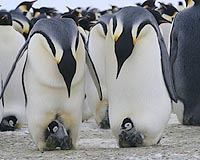| . |  |
. |
Pretoria (AFP) Oct 5, 2010 South Africa launched Tuesday a special wildlife crime unit to tackle a dramatic surge in rhino poaching, driven by demand for the animal's horn in Asia for use in traditional medicines. Rhino poaching has doubled this year in South Africa, with 227 slaughtered so far compared to 122 in all of last year. Environment Minister Buyelwa Sonjica convened a two-day "rhino summit" Tuesday to bring together police and wildlife experts, and unveiled a new crime-fighting unit to crack down on poaching. "The National Wildlife Crime Investigation Unit will, among others, react immediately when a serious wildlife crime has been committed and be able to detect and investigate smuggling of wildlife and wildlife products," she said. "It should shock us all that to date about 227 animals have been killed illegally," she added. The new unit will bring together national and provincial wildlife authorities, who will then coordinate with police to act swiftly in new cases of poaching. Trade in rhino horns is banned internationally, but black market demand has fuelled a rise in high-tech poaching with marksmen darting the animals from helicopters and then hacking off the horn while they lie unconscious, according to police. The animal is simply left to die. Alarmed by the growing number of rhino deaths, South Africa has arrested scores of people -- many of them Vietnamese -- on poaching charges. The horns are coveted for medicinal and ornamental use in East and Southeast Asia, where it is used to treat fever and high blood pressure. The East Asian economic boom has powered the demand of rhino horn, with buyers willing to pay up to 2,500 dollars (1,900 euros) for a single horn, which can weigh up to 11 kilos (24 pounds). The surge in demand, combined with endemic poverty in many of the animal's habitats, has helped to push rhino poaching to the highest levels in 15 years, according to wildlife monitoring group Traffic. South Africa has 26 poaching cases before the courts, with most of the 80 people arrested of Vietnamese origin. One high-profile case also snared two veterinarians, a game farm owner and a pilot, who were among 11 people arrested last month on charges of running a poaching ring near the world-famous Kruger National Park. Five others were arrested last weekend in connection with the killings of at least five rhinos in eastern KwaZulu-Natal province, according to wildlife authorities. "We are dealing with a mighty force, but I think it's a force we can defeat," said Sonjica. South Africa plans a bi-lateral meeting with Vietnam to discuss rhino poaching, said Sonjica, who is heading to China on Wednesday to for talks on the issue. Rhino numbers in South Africa have grown to over 20,000 since the 1960s, after successful conservation efforts saved the species from extinction.
Share This Article With Planet Earth
Related Links Darwin Today At TerraDaily.com
 Fossilized Giant Penguin Feathers Reveal Color, Feather Structure Of Ancient Birds
Fossilized Giant Penguin Feathers Reveal Color, Feather Structure Of Ancient BirdsRaleigh NC (SPX) Oct 04, 2010 A North Carolina State University researcher is part of a team that has discovered fossilized feathers from a giant penguin that lived near the Equator more than 36 million years ago. These feathery fossils reveal color patterns in an ancient extinct penguin species, and offer clues to how modern penguin feathers evolved. The penguin in question - dubbed Inkayacu paracasensis, or Water Kin ... read more |
|
| The content herein, unless otherwise known to be public domain, are Copyright 1995-2010 - SpaceDaily. AFP and UPI Wire Stories are copyright Agence France-Presse and United Press International. ESA Portal Reports are copyright European Space Agency. All NASA sourced material is public domain. Additional copyrights may apply in whole or part to other bona fide parties. Advertising does not imply endorsement,agreement or approval of any opinions, statements or information provided by SpaceDaily on any Web page published or hosted by SpaceDaily. Privacy Statement |